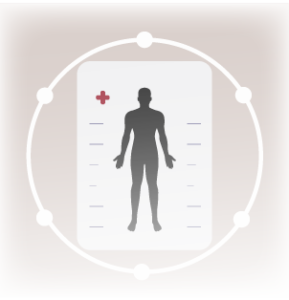Top tips:
- Fatigue is very common in cirrhosis, and is often multifactorial
- Potential contributing factors include pain, pruritus, anxiety, depression
- Treat the patient’s fatigue if it is affecting their quality of life or daily functioning
- At the end of life (last few weeks or days), as the patient’s condition deteriorates, certain non-pharmacological interventions will become unrealistic (e.g. exercise), and pharmacologic interventions may become less effective. Reassess patient’s GOC as appropriate

- Medications or medication withdrawal (assess recent medication changes)
- Anemia (Anemia Document in development)
- Metabolic – Metabolic acidosis, hypothyroidism/hyperthyroidism, hyponatremia
- Malnutrition (Malnutrition Document in Development), Vitamin D deficiency
- Mood disorders such as anxiety, depression
- Sleep disturbances
Consider non-pharmacological management in all patients where fatigue has a significant impact on patient’s quality of life
If non-pharmacological therapy alone fails, and fatigue is having a severe impact on the patient’s quality of life and ability to function, a trial of pharmacological therapy can be considered.
There is limited data in this area. This suggestion is based on expert opinion rather than strong evidence.
| Medication: | Recommended Dose | Additional information |
|---|---|---|
| Methylphenidate (Ritalin) | 2.5mg to 5mg PO qAM and noon |
|
- Ongoing discussions with patients and caregivers are needed to address patient’s goals of care as condition and prognosis changes.
- Energy conservation will become more important
- Ensure appropriate supports are in place to assist with activities of daily living and nursing care is available as needed
We gratefully acknowledge the Physician Learning Program for their design assistance.
This section was adapted from content using the following evidence based resources in combination with expert consensus. The presented information is not intended to replace the independent medical or professional judgment of physicians or other health care providers in the context of individual clinical circumstances to determine a patient’s care.
Authors (Alphabetical): Amanda Brisebois, Sarah Burton-Macleod, Ingrid DeKock , Martin Labrie, Noush Mirhosseini, Mino Mitri, Kinjal Patel, Aynharan Sinnarajah, Puneeta Tandon
Thank you to pharmacists Omer Ghutmy and Meghan Mior for their help with reviewing these pages.
Helpful Links:
References:
- Davison SN on behalf of the Kidney Supportive Care Research Group. Conservative Kidney Management Pathway; Available from: https//:www.CKMcare.com.
- Bajaj JS, Ellwood M, Ainger T, Burroughs T, Fagan A, Gavis EA, Heuman DM, Fuchs M, John B, Wade JB. Mindfulness-Based Stress Reduction Therapy Improves Patient and Caregiver-Reported Outcomes in Cirrhosis. Clin Transl Gastroenterol. 2017 Jul 27;8(7):e108. doi: 10.1038/ctg.2017.38. PMID: 28749453; PMCID: PMC5539344.
- Blockmans D, Persoons P, Van Houdenhove B, Bobbaers H. Does methylphenidate reduce the symptoms of chronic fatigue syndrome? Am J Med. 2006 Feb;119(2):167.e23-30. doi: 10.1016/j.amjmed.2005.07.047. PMID: 16443425. PMID: 16443425
- Dyson JK, Elsharkawy AM, Lamb CA, Al-Rifai A, Newton JL, Jones DE, Hudson M. Fatigue in primary sclerosing cholangitis is associated with sympathetic over-activity and increased cardiac output. Liver Int. 2015 May;35(5):1633-41. doi: 10.1111/liv.12709. Epub 2014 Dec 4. PMID: 25363895; PMCID: PMC4737110.
- Ian Gan S, de Jongh M, Kaplan MM. Modafinil in the treatment of debilitating fatigue in primary biliary cirrhosis: a clinical experience. Dig Dis Sci. 2009 Oct;54(10):2242-6. doi: 10.1007/s10620-008-0613-3. Epub 2008 Dec 12. PMID: 19082890.
- Jones DE, Newton JL. An open study of modafinil for the treatment of daytime somnolence and fatigue in primary biliary cirrhosis. Aliment Pharmacol Ther. 2007 Feb 15;25(4):471-6. doi: 10.1111/j.1365-2036.2006.03223.x. PMID: 17270003.
- Jopson L, Dyson JK, Jones DE. Understanding and Treating Fatigue in Primary Biliary Cirrhosis and Primary Sclerosing Cholangitis. Clin Liver Dis. 2016 Feb;20(1):131-42. doi: 10.1016/j.cld.2015.08.007. PMID: 26593295.






